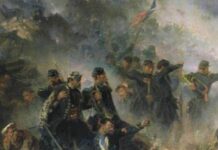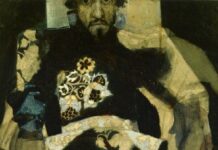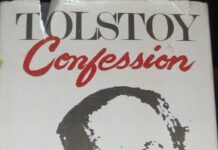
Ebook Info
- Published: 2009
- Number of pages: 528 pages
- Format: EPUB
- File Size: 0.67 MB
- Authors: Leo Tolstoy
Description
A vibrant translation of Tolstoy’s most important short fiction by the award-winning translators of War and Peace. Here are eleven masterful stories from the mature author, some autobiographical, others moral parables, and all told with the evocative power that was Tolstoy’s alone. They include “The Prisoner of the Caucasus,” inspired by Tolstoy’s own experiences as a soldier in the Chechen War, “Hadji Murat,” the novella Harold Bloom called “the best story in the world,” “The Devil,” a fascinating tale of sexual obsession, and the celebrated “The Death of Ivan Ilyich,” an intense and moving examination of death and the possibilities of redemption. Pevear and Volokhonsky’s translation captures the richness, immediacy, and multiplicity of Tolstoy’s language, and reveals the author as a passionate moral guide, an unflinching seeker of truth, and ultimately, a creator of enduring and universal art.From the Trade Paperback edition.
User’s Reviews
Editorial Reviews: Amazon.com Review Amazon Best Books of the Month, December 2009: To anyone for whom Leo Tolstoy’s masterpieces War and Peace and Anna Karenina have stood as giants too daunting to scale, and equally to the many readers who have devoured those novels and are hungry for more, we offer The Death of Ivan Ilyich and Other Stories. Newly translated by the team of Richard Pevear and Larissa Volokhonsky, who have enlivened the Russian classics for a new generation, this selection of 11 of his finest stories reveals a Tolstoy of many sides and unsurpassed storytelling talents. Along with smaller gems like “Alyosha the Pot,” the collection features a handful of thrilling longer tales that each carry the power of a novel: the terrifying murderer’s confession of “The Kreuzer Sonata,” the breathlessly dramatic path of a single crime through dozens of lives in “The Forged Coupon,” and the haunting account of the isolation of mortality in the legendary title story. Most revelatory of all for a modern reader is the final novella, and Tolstoy’s final work, “Hadji Murat,” the disturbingly contemporary story of a fiercely honorable Chechen warrior caught between local rivalries and the ambivalent reach of a decadent empire. –Tom Nissley About the Author Together, Richard Pevear and Larissa Volokhonsky have translated works by Tolstoy, Dostoevsky, Chekhov, and Gogol. They were twice awarded the PEN/Book-of-the-Month Club Translation Prize (for their versions of Dostoevsky’s The Brothers Karamazov and Tolstoy’s Anna Karenina), and their translation of Dostoevsky’s Demons was one of three nominees for the same prize. They are married and live in France. Excerpt. © Reprinted by permission. All rights reserved. Hadji Murat-I was returning home through the fields. It was the very middle of summer. The meadows had been mowed, and they were justabout to reap the rye.There is a delightful assortment of flowers at that time of year: red, white, pink, fragrant, fluffy clover; impudent marguerites; milk-white “love-me-love-me-nots” with bright yellow centers and a fusty, spicy stink; yellow wild rape with its honey smell; tall-standing, tulip-shaped campanulas, lilac and white; creeping vetch; neat scabious, yellow, red, pink, and lilac; plantain with its faintly pink down and faintly perceptible, pleasant smell; cornflowers, bright blue in the sun and in youth, and pale blue and reddish in the evening and when old; and the tender, almond-scented, instantly wilting flowers of the bindweed.I had gathered a big bouquet of various flowers and was walking home, when I noticed in a ditch, in full bloom, a wonderful crimson thistle of the kind which is known among us as a “Tartar” and is carefully mowed around, and, when accidentally mowed down, is removed from the hay by the mowers, so that it will not prick their hands. I took it into my head to pick this thistle and put it in the center of the bouquet. I got down into the ditch and, having chased away a hairy bumblebee that had stuck itself into the center of the flower and sweetly and lazily fallen asleep there, I set about picking the flower. But it was very difficult: not only was the stem prickly on all sides, even through the handkerchief I had wrapped around my hand, but it was so terribly tough that I struggled with it for some five minutes, tearing the fibers one by one. When I finally tore off the flower, the stem was all ragged, and the flower no longer seemed so fresh and beautiful. Besides, in its coarseness and gaudiness it did not fit in with the delicate flowers of the bouquet. I was sorry that I had vainly destroyed and thrown away a flower that had been beautiful in its place. “But what energy and life force,” I thought, remembering the effort it had cost me to tear off the flower. “How staunchly it defended itself, and how dearly it sold its life.”The way home went across a fallow, just-plowed field of black earth. I walked up a gentle slope along a dusty, black-earth road. The plowed field was a landowner’s, a very large one, so that to both sides of the road and up the hill ahead nothing could be seen except the black, evenly furrowed, not yet scarified soil. The plowing had been well done; nowhere on the field was there a single plant or blade of grass to be seen—it was all black. “What a destructive, cruel being man is, how many living beings and plants he annihilates to maintain his own life,” I thought, involuntarily looking for something alive amidst this dead, black field. Ahead of me, to the right of the road, I spied a little bush. When I came closer, I recognized in this bush that same “Tartar” whose flower I had vainly picked and thrown away.The “Tartar” bush consisted of three shoots. One had been broken off, and the remainder of the branch stuck out like a cut-off arm. On each of the other two there was a flower. These flowers had once been red, but now they were black. One stem was broken and half of it hung down, with the dirty flower at the end; the other, though all covered with black dirt, still stuck up. It was clear that the whole bush had been run over by a wheel, and afterwards had straightened up and therefore stood tilted, but stood all the same. As if a piece of its flesh had been ripped away, its guts turned inside out, an arm torn off, an eye blinded. But it still stands anddoes not surrender to man, who has annihilated all its brothers around it.“What energy!” I thought. “Man has conquered everything, destroyed millions of plants, but this one still does not surrender.”And I remembered an old story from the Caucasus, part of which I saw, part of which I heard from witnesses, and part of which I imagined to myself. The story, as it shaped itself in my memory and imagination, goes like this. Read more
Reviews from Amazon users which were colected at the time this book was published on the website:
⭐Many people agree that The Beatles are the best band of all time (I’m actually not of this camp, but let’s forget that for the sake of argument). However, imagine if The Beatles had a reputation as unlistenable, opaque, and virtually impenetrable. The first time you heard some actual songs by them, you’d be surprised at how easy it is to listen to them; the melodies are beautiful yet catchy, the instrumental parts well-structured and well-played.This is the big surprise for me with Tolstoy. I’ve never come across an author, band, artist, etc. whose reputation is so contrary to their actual nature. Starting in childhood, we’re told that War and Peace is an inaccessible tome of a novel. Tolstoy’s prose is famously thought to be cold, formal, and difficult to get through.This couldn’t be further from the truth. Tolstoy’s writing is beautifully flowing and sometimes even playful; his characters are well thought-out and sympathetic; the narrative motion of his stories is perfectly paced. This is not just true of this translation of some of his short stories, although Pevear and Volokhonsky seem particularly adept at honoring Tolstoy’s gift with language.At the danger of sounding fanatical, these stories are perfect. Literally nothing about them could be changed for the better. The volume begins with a fragment, Diary of a Madman, which discusses a religious man’s breakdown. Parts of the story are even reminiscent of Sartre’s Nausea, a book that came several decades later. There are two stories in the book that involve a realistic depiction of war: A Prisoner of the Caucuses and the novella Hadji Murad. I don’t usually enjoy war writing, but Tolstoy has such a love for his characters, such a brutally honest and yet somehow optimistic view of human conflict, that these stories seem less about the actual logistics of war and more about man’s contradictory disposition to violence.The jewel of this book is the title story, The Death of Ivan Ilyich. I’ve recommended this story (among many others by Tolstoy) to several friends, and I’ve yet to find anyone who isn’t in some way moved by it. The story involves a man who, at the end of his life, begins to question the choices he’s made and how he’s lived. Again, Tolstoy’s compassion paints his characters as flawed but well-intentioned. If you have any doubts about this book, I’d recommend first reading The Death of Ivan Ilyich (even if it’s an older translation — some of these are even available online for free). The translation by Pevear and Volokhonsky is definitely superior, but the story is so strong that its genius is readily seen even in the older, stodgier translations.Another thing that surprised me was the modern feel of Tolstoy’s stories. These stories would be right at home in the 20th century literary canon — sometimes it’s even a shock when a character pulls up in a troika. You find yourself saying, “Oh, right — this takes place in the 1800s.” Because Tolstoy deals in morals and characters’ subtle motivations, the writing is truly timeless.Of course, once you read these stories, I’d recommend moving on to either Anna Karenina or War and Peace. Pevear and Volokhonsky have superb translations of both. And, when you come to the end of War and Peace, you’ll have the same epiphany reached by most people who’ve read it: that this book, forever depicted as a cold, stern, tome, has some of the most beautifully depicted characters, the most involving and page-turning narratives, and the most memorable passages of any book you’ve ever read.***One quick note: Many of the 1-star and 2-star reviews for this book claim it’s full of errors and typos. However, if you look closely, you’ll see that these reviews are actually for other Tolstoy compilations (which are also named for The Death of Ivan Ilyich), not for the P&V translation. For some reason Amazon lumps all these reviews together even though the books are vastly different. It’s worth noting that, since Tolstoy’s work is in the public domain, there are a lot of very shoddily put-together books of his stories.
⭐Good copy to keep in the home library. Great reading for any student of this author that never fails to keep interest. Would encourage anybody who enjoys Russian literature to savor this nice collection.
⭐This book is exquisitely grounded in reality–beginning with a funeral. But it also makes the strangest and most terrifying part of life vividly real. How do we move from this life to the next? Why do we suffer? What matters in this life? Is there justice in this world? in the next? Reading Ivan Ilyich helped me to find answers to all these questions.And the story itself is delightful to read.
⭐This was so fun to read. This was my first experience with Tolstoy. I never have time to sit down and take in the War and Peace novel so it was good to enjoy some of his stuff in short story format.
⭐Some of the greatest short stories of all time.
⭐NOTE: This review is of the Richard Pevear/Larissa Volokhonsky translation.One thing that Leo Tolstoy could never be accused of was being a minimalist. He is best known for the massive novel ‘Anna Karenina’ and the even more massive ‘War and Peace’. Almost all of his fiction seems to be an attempt to pack in as much panoramic life as possible. This characteristic applies to his shorter pieces as well as his novels.This new translation (2009) assembles his best known stories as well as some lesser known ones as well and is presented chronologically, from the earliest, “The Prisoner of the Caucassus”, written between the composition of ‘War and Peace’ and ‘Anna Karenina’, to his final novella, “Hadji Murat,” written over the last two decades of his life and published posthumously a few years after his death. All of the stories deal with the themes familiar in his other works—how can a man lead a moral life, what should his attitude be toward the pleasures of the flesh, honor in the midst of war and equality among the classes.”The Prisoner of the Caucassus” deals with a young soldier who has obtained leave from his regiment to visit his ailing mother and perhaps marry before she dies. On his way through the mountain passes he takes a wrong turn and is pursued by Tartars. His bafflement as to why these people would want to kill him is similar to young Nicolai Rostov in ‘War and Peace’, who had grown up in the bosom of family love and could not conceive that anyone would wish him harm. The naiveté quickly disappears as a steely resolve to survive takes its place. Tolstoy is a master at depicting wartime action and the campaigns of pursuit, capture or killing which are inherent in war.”The Death of Ivan Ilyich”, “The Kreutzer Sonata” and “The Devil” are largely concerned with the subjective evolutions of individual consciousness in relation to external perceived challenges. My early exposure to the psychologically penetrating tales of Henry James has made me predisposed to be more comfortable in these subjective realms where specific characters undergo psychological/spiritual journeys. “The Death of Ivan Ilyich” depicts the life of an attorney/judge who has gone through all the right steps and played by the societal rules for reaching success and prosperity in life. He believes that his life has obtained a stability and order and that he has reached the pinnacle of success, until a random accident resulting in a bruise in his side, seemingly inconsequential but escalating to severe internal pain disrupts all of his sense of order. His selfish wife now seems self-absorbed and irritable with Ivan’s health crisis as it presents an inconvenience in her life. His escalating illness, never named but presumably cancer, forces Ivan to reevaluate his life and question all his previous judgments. He goes through all the stages of dying to the point of ultimate acceptance. He reaches that point which always fascinated Tolstoy and compelled him to contemplate the process to the ultimate last step of consciousness that he also depicted in ‘War and Peace’, as if he wanted to venture as close as possible to the ‘final frontier’ and still be able to return to tell the tale. Ivan’s serenity precedes his physical death and achieves the ultimate transformation.The character in ‘The Kreutzer Sonata” seems like he just stepped out of the pages of one of Dostoevsky’s intense novels and wandered into Tolstoy’s universe. Like Raskolnikov, he is a killer and, also like Raskolnikov, he needs to make a complete, thorough confession to another human. His jealousy and ambivalence to his wife’s beauty and seductiveness has culminated in murder. The character repents of the murder, but not, as Tolstoy later made clear, of his aversion to sexual pleasure. Tolstoy’s own revulsion toward sexual pleasure in his later life made explicit his own attitude. Despite this obvious bias, the story can be read as a compelling psychological fable without knowing the feelings of the author.”Master and Man” is one of Tolstoy’s most evocative tales. A greedy landowner, Brekhunov, takes his servant, Nikita, with him to a neighboring landowner in order to purchase a valuable piece of land. In his haste to reach his destination before other prospective buyers, he speeds his horse and servant on through a snowstorm, gets lost and, as night approaches, appears to be stranded through the frigid night. The horse is pushed beyond endurance and dies and he abandons his servant, who is succumbing to hypothermia, to find his way, gets lost and ends up back at his sleigh. He undergoes a radical spiritual transformation from self-obsessed aristocrat, willing to sacrifice anyone in behalf of reaching his goal to resignation. This predicament is no one else’s doing but his own. He has refused a previous offer to stay with a family overnight and resume his journey in the morning. He realizes too late that he should have accepted that offer. Left with no one else to hold responsible but himself, he decides to cover his dying servant with his own body in the back of the carriage, dying in the process but enabling his servant to survive. Like Ivan Ilyich, he travels through different stages before reaching a spiritual epiphany and considering the worth of someone other than himself. The nocturnal cold and the slow, inevitable acquiescence to the harshness of the environment is reminiscent of the equally chilling Jack London tale, “To Build a Fire”.The final story in the collection, the novella “Hadji Murat,” take us full circle back to the Caucassus and tells the story of real life Chechen rebel Hadji Murat who, through a chain of circumstances, felt forced to retain his honor by defying the more militant rebel Shamil, who has held Murat’s mother, wife and son captive, and defecting to the Russian forces. Murat is constantly aware that he may be placing himself in an untenable situation in which he is not fully trusted by either the Russians or the Chechens. Against this foundation, Tolstoy wanders into the minds of various rebels and Russians, even launching into a tirade against the lecherous and cruel Tsar Nicholas I who prided himself on being against the death penalty while also condemning prisoners to run gauntlets of thousands of blows resulting in certain fatality. Tolstoy lost none of his descriptive powers in the final years of his life. ‘Hadji Murat” is as compellingly cinematic as anything he had written previously. My only reservation with the story, as for most of the others in this collection, is that they could all benefit from being fleshed out in greater length. He has the material for several novels here and, while I’m not advocating expanding them to the sizes of his magnum opuses, I feel that they could have been improved by more intensive exploration of the characters and circumstances. The tales race by through successions of characters we don’t have enough time to get to know thoroughly before being thrust into another setting. In my view, Tolstoy never reigned in his maximalist tendencies, even in his shorter works. Nonetheless, what we have are still vital and indispensable contributions to a titanic literary career.
⭐Of the many covetable things that accompany reading Tolstoy perhaps the most desirable is that he never lets one down. Some stories are more stirring than others, but his brilliance as a story teller unfailingly shines through.The highlights in this collection are “The Death of Ivan Ilyich”, an unforgettable description of the slow and tortured death of its protagonist, and “Hadji Murat”, which relates the remarkable escapades of a wild and unpredictable Tatar bandit hero among the rugged Caucasian hills.Tolstoy follows no formula. His stories vary in style and subject. The only quality they share is that they never disappoint.
⭐Good book and pretty readable!
⭐I hadn’t read Tolstoy until I read this book, but now I understand why he is regarded as the Shakespeare of novelists. He takes a situation, develops it, then keeps pushing until you no longer know how much further there could be to go. Fascinating. Also excellent value for money as this is not a book of short stories, but a book of novellas – hours of entranced reading. Enjoy!
⭐Bit tatty, and delivery was loooooooooooong…
⭐It has one of the best stories from Tolstoy. A must for your reading collection
⭐The collection of stories is broad and is a worthwhile opportunity to delve into the work to of Tolstoy at a bargain price.
⭐Excellent translation… Short stories written in the late 1800 full of contemporary learning.
Keywords
Free Download The Death of Ivan Ilyich and Other Stories in EPUB format
The Death of Ivan Ilyich and Other Stories EPUB Free Download
Download The Death of Ivan Ilyich and Other Stories 2009 EPUB Free
The Death of Ivan Ilyich and Other Stories 2009 EPUB Free Download
Download The Death of Ivan Ilyich and Other Stories EPUB
Free Download Ebook The Death of Ivan Ilyich and Other Stories





